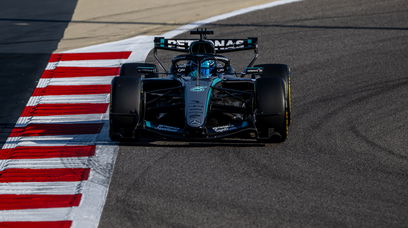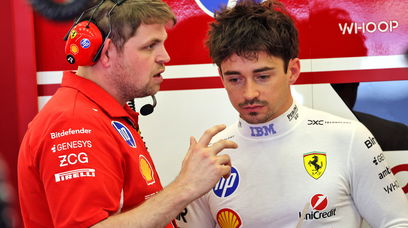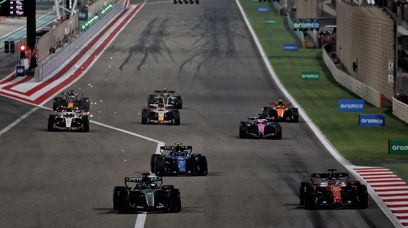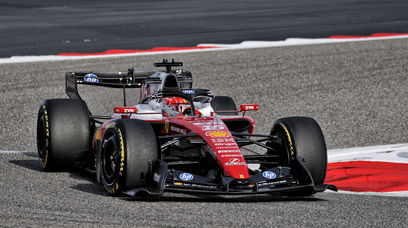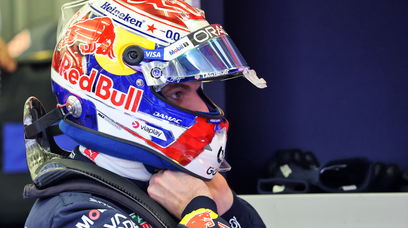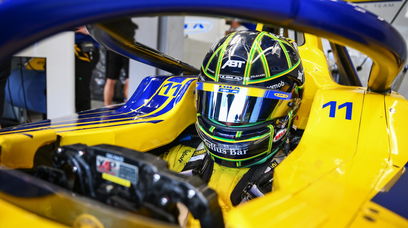In 2014, Pyry Salmela got the chance to work in Formula 1. A huge challenge for the Finn, who at the time had little knowledge of motorsport. "Of course I was familiar with F1, as the sport was very popular in Finland even in those years. Before that, however, I was active as an ice hockey player and did more in other 'normal' sports. I was a good athlete myself, but I lacked something to make it. Unconsciously, however, I was already developing myself as a coach in those years," the ever-smiling Salmela told RacingNews365.com . "However, at that time, I had no idea what sport I would become active in to help athletes. The only thing I did know was that I wanted to work with athletes who want to do everything they can to become the best," added Salmela, who spoke to us in a very relaxed manner at Red Bull's hospitality centre in Monaco. "Doctor Aki Hintsa gave me a call and I got a job interview with him. At that point I actually didn't know exactly what was in store for me and I didn't expect to get the job. But I did, and a week later I already had to travel to Bahrain! "Incidentally, that became quite a hassle as my passport had just expired. Fortunately, I was able to arrange everything in a few days and travel to Bahrain, and since then I have been active in Formula 1." It was something that Salmela actually did not expect, as the strongly built trainer is interested in different sports. "Actually I thought that every three years or so I would be coaching a new athlete in a new sport. It's clear now that that hasn't been the case, and that's mainly because it is a tremendous challenge to coach an F1 driver. "They are fantastic athletes, and what they have to deal with is unprecedented. Both in the car and out of the car, there's an awful lot that comes at them."
How Salmela takes a perfectionist approach
"That's something I've had to immerse myself in. When I entered F1, I didn't have a good idea about how a Formula 1 driver can ideally prepare for a Grand Prix," Salmela explained. "Over the years, however, I've learned a lot and gotten a good idea of what it takes to get an F1 driver in his best shape. I don't do that alone, as I now have a whole team that I work with to support Pierre Gasly at the moment. The team includes a physiotherapist, a mental coach and a medical expert. By putting all that expertise together, you can ultimately create an ideal plan for the driver, and that's what we have in place very well now." During the conversation it becomes clear that Salmela is a perfectionist and therefore does not hesitate to delve into new material left and right. Something that, according to the trainer, is also necessary, precisely because F1 drivers must possess a large skill set. "A clear example of how difficult it is to be a racing driver is, for example, the concentration they constantly need to have," Salmela said. "For example, if I or a normal person goes for a run for ten kilometres and it gets tough, you can close your eyes for a while to squeeze everything out. If a driver does that during a race when it starts to get tough, he misses a braking point or, worst case scenario, finds himself in the wall. That's why a driver must show top performance that allows him to perform accurately under physiological stress. "Neck strength and high endurance are the well-known F1-specific fitness goals, due to the high level of cardiovascular stress and high magnitude G-forces that the driver must endure while driving the car. "However, I look at the body as a whole, and what makes this sport so interesting is its complexity. It’s a combination of motor and sensorimotor skills, combined with a number of physiological stressors, and figuring out the balance in that puzzle makes it interesting."
Salmela's admiration for F1 drivers
According to Salmela, however, a driver must prepare well in many ways and not just focus on training physically. "Reflexes are important for a driver, but the drivers in Formula 1 are already very well trained in reaction, and that is why I am not in favour of making it too complicated in terms of cognitive training strategies," he revealed. "After all, the most important thing for an F1 driver is to drive the car, and so the focus should be on that. I have also gained a little bit of experience in racing cars myself, in order to get a better idea of what the drivers are going through and thus improve my training for the drivers. "Through my own experience on the track and in the simulator, and through working with Kvyat and Gasly, I have gained even more respect for the drivers. Drivers need to have a great skill set to compete in F1. "It's the whole picture that has to be right, both on and off the track. This is what makes the sport and its drivers so specific compared to other sports and athletes. Besides being able to race well, you also have to deal with a lot of media and sponsor obligations, for example. "Driving a modern Formula 1 car is incredible complex and largely different to a road car. I bet very few of us would be able to drive it out of the pit box. Motor skills such as braking and steering are one thing, understanding the grip and the behaviour of the car are another. "When you combine that with constant track evolution and physiological stress, you begin to understand the complexity of this sport. All this together makes this sport and its drivers very unique in my eyes, and that is the main reason why I am still involved in this sport and have not switched to another sport." It therefore seems likely that we will continue to see Salmela on the F1 grid in the coming years. "I still have the same athlete mindset where I need to feel like I'm making progress, but I'm very happy where I am at the moment. We have an excellent working relationship because we have the same goals in mind. There are clear objectives that we have set and both of us are very disciplined in achieving them," Salmela said with a clear conviction in his gaze. In addition to the admiration he has for F1 drivers, it is also clear that the results achieved with Gasly in recent years give the Finn even more motivation: "When I look at Pierre, I see that he has improved his entire skill set in recent years, and as a trainer that is very nice to see. It means that he is giving his all and that is also exactly what I want from myself."
Most read
